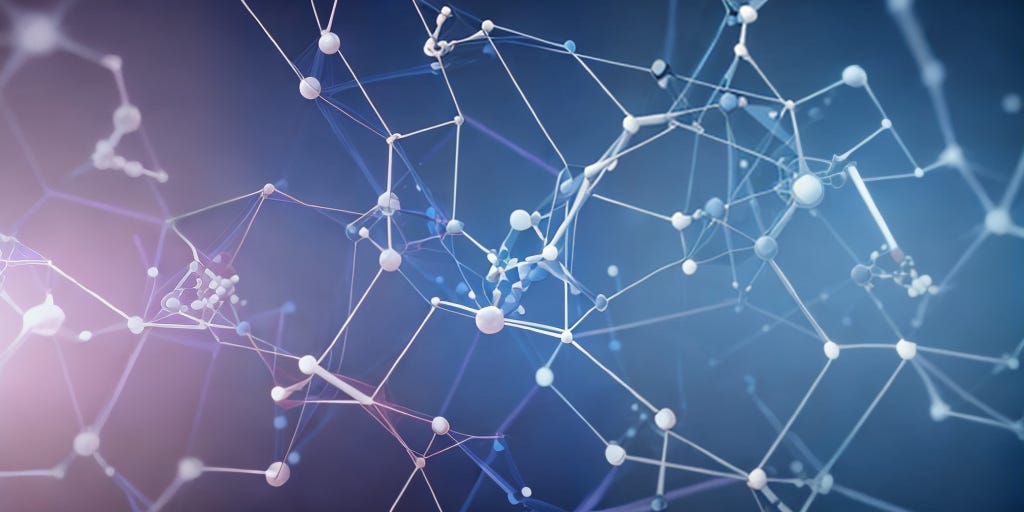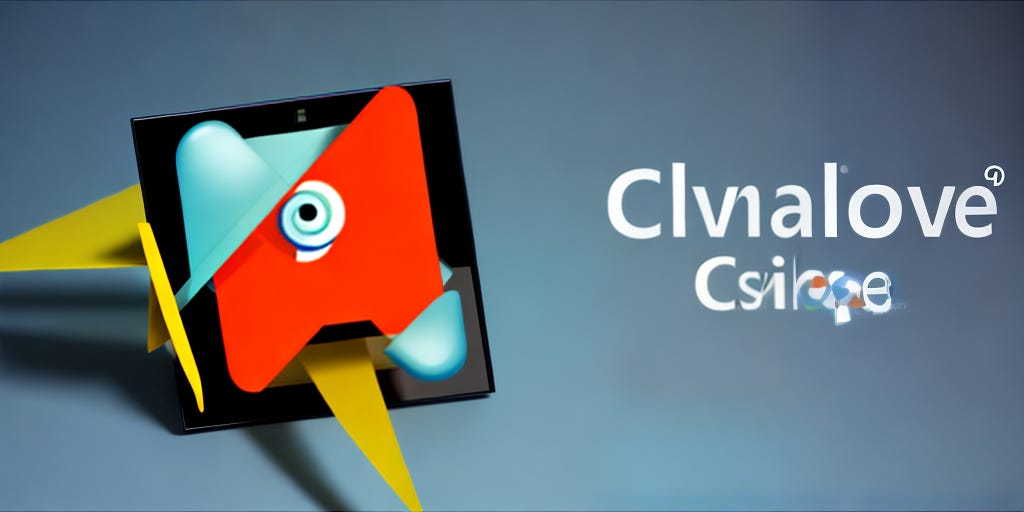Unleashing the Power of AI: From Superintelligence to Mental Health and Molecular Discoveries
News of the week in Machine Learning
This week in the world of Machine Learning, OpenAI is taking steps to prevent the risks associated with superintelligent AI by forming a new team called Superalignment. AI is also making strides in mental healthcare, with the potential to improve patient outcomes and develop personalized treatments. Additionally, researchers from MIT and the MIT-Watson AI Lab have developed an AI system that can predict molecular properties using minimal training data, revolutionizing scientific discoveries. Grammy Awards have announced that music containing AI elements is now eligible for consideration, while the Department of Veterans Affairs is using AI to predict aggressive prostate cancer. Clippy, the iconic Microsoft Office assistant, is making a comeback as an AI assistant for Windows 11. And an executive at Amazon Web Services downplays concerns about the existential threat of AI, emphasizing the transformative potential of generative AI for businesses.
OpenAI building new team to stop superintelligent AI going rogue
AI In Mental Health: Opportunities And Challenges In Developing Intelligent Digital Therapies
This AI system only needs a small amount of data to predict molecular properties
Grammys CEO: Music Containing AI-Created Elements Eligible
TeleSign profiles half of the world's mobile phone users
VA researchers working on artificial intelligence that can predict prostate cancer
Clippy is back as a ChatGPT-powered AI assistant for Windows 11
AWS exec downplays existential threat of AI, calls it a 'mathematical parlor trick'
OpenAI building new team to stop superintelligent AI going rogue
OpenAI is forming a new team, called Superalignment, to prevent the potential dangers of superintelligent AI. They aim to address concerns about the catastrophic effects and risks associated with advanced AI technology. Google is also warning its workers about the risks and limitations of AI chatbots. Meanwhile, Nvidia has unveiled a supercomputer that could revolutionize generative AI and recommender systems. Adobe Photoshop has introduced a new feature called Generative Fill, which has the potential to greatly impact imagery. This news is important because it highlights the growing concerns and efforts to address the risks and limitations of AI technology, as well as the advancements being made in the field.
https://www.digitaltrends.com/computing/openai-building-new-team-to-stop-future-ai-going-rogue/
AI In Mental Health: Opportunities And Challenges In Developing Intelligent Digital Therapies
This article discusses how artificial intelligence (AI) is being used in mental healthcare, including diagnosing conditions, developing therapies, and providing personalized treatments. It highlights the potential benefits of AI in improving patient outcomes and reducing reliance on medication and hospitalization. Chatbots like Woebot and Tess are being used as AI therapists, while wearable AI solutions like Biobeat collect data to assess mood and provide predictive warnings. AI can accurately predict mental health problems and determine patients' likelihood of responding to treatment. It can also improve patient compliance and help develop personalized treatment plans. However, challenges such as AI bias and the subjective nature of diagnosing mental health issues need to be addressed. Thorough assessment and caution are necessary, but AI has the potential to greatly impact mental healthcare.
This AI system only needs a small amount of data to predict molecular properties
Researchers from MIT and the MIT-Watson AI Lab have developed an AI system that can predict molecular properties and generate new molecules using only a small amount of training data. This technology has significant implications for various scientific fields, including nanotechnology, chemistry, and medicine. The system uses machine learning to understand the rules that govern the combination of building blocks to produce valid molecules, reducing the time and cost involved in discovering new materials and drugs. The researchers believe this approach can be applied to other types of data beyond chemistry and material science, and plan to expand the system to include 3D geometry. Overall, this development has the potential to revolutionize the field of molecular research and accelerate scientific discoveries.
https://phys.org/news/2023-07-ai-small-amount-molecular-properties.html
Grammys CEO: Music Containing AI-Created Elements Eligible
The Grammy Awards have announced that music containing elements created by artificial intelligence (AI) is now eligible for consideration, but music created solely by AI is not eligible. The Recording Academy wants technology to enhance human creativity rather than replace it. New York City has implemented an anti-bias law for hiring algorithms to prevent discrimination in the hiring process. The article also discusses the challenges of determining the process of AI-generated music composition and the difficulty of enforcing plagiarism policies. The comments section covers various topics including the popularity of manual transmission vehicles, online disinformation, Twitter's association with Elon Musk, and the implementation of NYC's anti-bias law for hiring algorithms.
TeleSign profiles half of the world's mobile phone users
TeleSign, a US company, has been secretly profiling millions of mobile phone users and generating a "reputation score" based on their data. They receive this data from BICS, a Belgian company, and their clients like TikTok and Microsoft use this score to make decisions about user sign-ups. This violates EU data protection laws and a complaint has been filed against TeleSign. In related news, Meta (parent company of Facebook) has been fined €1.2 billion for not complying with EU privacy regulations, and Apple is facing criticism for its online tracking tool. The Irish regulator has also proposed a fine for Facebook over a complaint made by privacy activist Max Schrems.
https://noyb.eu/en/telesign-profiles-half-worlds-phone-users
VA researchers working on artificial intelligence that can predict prostate cancer
The Department of Veterans Affairs (VA) is using artificial intelligence (AI) to develop a technology that can predict aggressive prostate cancer. They will analyze data from over 5,000 veterans and use diagnostic images and socioeconomic factors to identify patterns. This research aims to improve cancer management and potentially help with other diseases affecting veterans. Prostate cancer is a common cancer among men in the US, and this AI technology could provide valuable insights into veterans' health.
https://www.foxnews.com/tech/va-researchers-working-artificial-intelligence-predict-prostate-cancer
Clippy is back as a ChatGPT-powered AI assistant for Windows 11
Clippy, the animated paperclip assistant from Microsoft Office, is making a comeback as an AI assistant for Windows 11. A developer has created an unofficial version of Clippy powered by ChatGPT AI, allowing users to have a ChatGPT app on their Windows 11 PCs. While Microsoft is considering creating an official generative AI version of Clippy, users can download the unofficial Clippy app called FireCube. However, caution is advised when installing third-party ChatGPT apps, as some could be malware. It will be interesting to see Microsoft's response to the unofficial Clippy app, but using the official Copilot assistant on Windows 11 is a smarter choice.
https://bgr.com/tech/clippy-is-back-as-a-chatgpt-powered-ai-assistant-for-windows-11/
AWS exec downplays existential threat of AI, calls it a 'mathematical parlor trick'
An executive at Amazon Web Services (AWS) has dismissed concerns about the existential threat of artificial intelligence (AI), referring to it as a "mathematical parlor trick". Matt Wood, VP of product at AWS, has been a leading voice on AI/ML and recently announced Amazon Bedrock, a set of generative AI tools. Wood explains how AI works and highlights the transformative power of generative AI for businesses. He will be speaking at the VB Transform event in San Francisco, where top executives will share strategies for integrating and optimizing AI investments. AWS has over 100,000 customers using its AI/ML services and offers options from different vendors through its Bedrock service. Wood advises organizations to approach generative AI with both a technical and cultural perspective to drive innovation successfully.










